After a month’s march through sand amid the ruins and palm trees lining the Nubian Nile an invading Egyptian army of cutthroats and mercenaries drawn from across the Ottoman empire encountered its first real resistance at the town of Kurti on Nov. 4, 1820. The formidable horsemen of the Sudanese Arab Shaigiya tribe were determined the Egyptians would never take their lands.
Screaming, they fell upon the army’s scouts with sword and lance, wiping them out. It was a bad start for the Egyptian commander, 25-year-old Ismail Pasha, whose artillery was still being shipped south by boat.
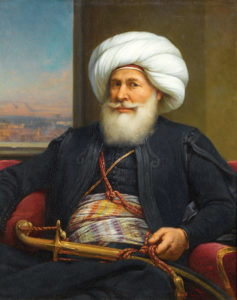
Ismail brought his troops into line against the Shaigiya, who were led by a young girl on a richly decorated camel. It was she who gave the order to attack, in a tradition celebrating the exploits of a fearless 17th century female Shaigiya warrior.
The Arabs’ horses pounded across the plain, smashing into the Egyptian infantry with such violence that its line began to collapse. As disaster loomed, the Egyptians’ formidable second-in-command, the Albanian Abdin Bey, led his horsemen in a series of desperate countercharges. Rallying, the Egyptian infantry poured fire into the Shaigiya ranks. The invaders prevailed, only to begin what one of their number later described as “12 months of misery and starvation.”
Joining the Egyptian expedition to Sudanese Nubia were three American mercenaries, including former U.S. Marine Corps Lt. George Bethune English, though illness kept him from the battlefield that day. The Massachusetts native, a convert to Islam, related his experiences as an artillery commander in Sudan in his 1822 memoir, A Narrative of the Expedition to Dongola and Sennaar.
Yet nearly two centuries after his death English remains an enigma—was he a mercenary, a spy or a sincere Muslim convert?
Born on March 7, 1787, to a prosperous family in Cambridge, across the Charles River from Boston, English studied first law and then divinity at Harvard College. In 1813, after exposure to both the Quran and a collection of 17th century documents questioning tenets of Christianity, English wrote The Grounds of Christianity Examined, in which he criticized key doctrines of the faith. The work elicited outrage in Protestant New England.
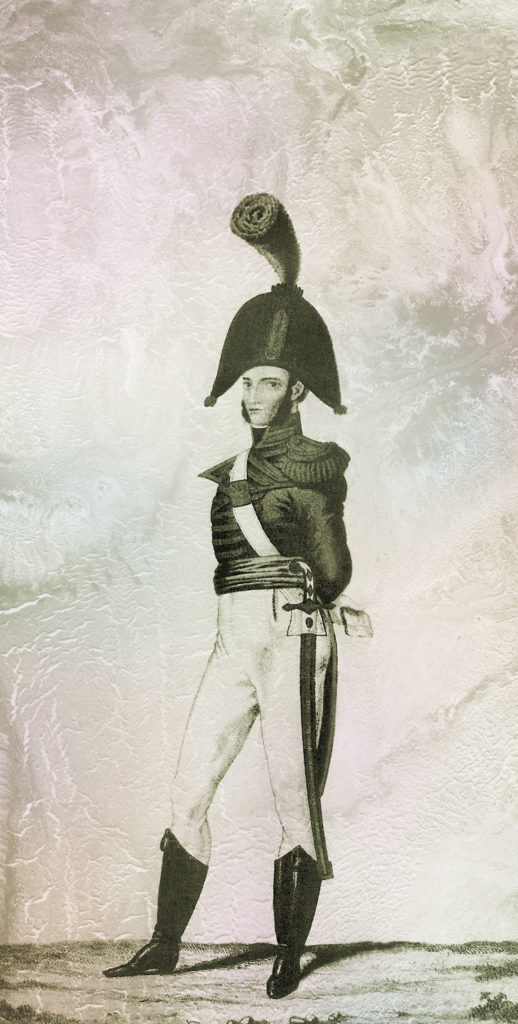
English was excommunicated from his church. His stated belief Islam was a moral system drawn from the Old and New Testaments, “modified a little and expressed in Arabic,” proved toxic to his scholarly reputation. Leaving Harvard, he ventured to the Allegheny frontier, where he briefly edited a newspaper. In 1808, before entering divinity school, he’d sought a military appointment, putting down as a reference U.S. Senator John Quincy Adams, who taught rhetoric and oratory at Harvard. In 1815, facing limited prospects and amid renewed conflict with Britain, English again applied for a commission, with backing from then U.S. Ambassador to Russia Adams.
This time it took. President James Madison nominated English for an appointment in the Marine Corps, and the 27-year-old was commissioned a second lieutenant on March 1, two weeks after the Senate ratified the Treaty of Ghent. English served in the Mediterranean Squadron, in the aftermath of the Barbary wars, and was promoted to first lieutenant in April 1817. Soon after he resigned his commission and moved to Constantinople, though he remained on the Naval Register until 1820. President James Monroe had since tapped Adams as his secretary of state. Was English acting as Adams’ covert agent in the Middle East?
By 1820 English had reportedly converted to Islam, changing his name to Muhammad Effendi. Relocating to Cairo, he parlayed the influence of British Consul General Henry Salt to secure an appointment in the Egyptian army as chief of artillery. Joining him were two American sailors who had seemingly deserted from the Mediterranean Squadron. Remembered only by their adopted names, New Yorker Khalil Aga and Swiss-born Achmed Aga converted to Islam and acted as English’s servants.
Egyptian ruler Muhammad Ali Pasha was planning a campaign south into Sudanese Nubia, hoping to build a dynasty to rival the Ottomans in Constantinople. (He and his sons would ultimately seize Sudan, Syria, Palestine, parts of the Red Sea coast and the holy cities of Arabia.)
The second purpose of his expedition was to exterminate the Mamluks, a military slave caste that had ruled Egypt before being treacherously slaughtered by Muhammad Ali a decade earlier. The survivors had fled to Nubia, where they practiced slave trading and forced farmers to grow their food on the blazing river plain while they basked on huge rafts anchored in the middle of the Nile.
Muhammad Ali’s third goal was to create a new Egyptian army composed of black slaves, something Napoléon Bonaparte had tried during his regional campaign. He resolved to seize thousands of Sudanese to fight his own wars of conquest and those he was obliged to join on behalf of his suzerain, Ottoman Sultan Mahmud II.
Led by Muhammad Ali’s third son, Ismail Kamil Pasha, the Egyptian invasion force was 4,000 strong, with 10 fieldpieces, two small howitzers and one mortar. The infantry included Turks, Kurds, Albanians, Circassians, Greeks, Syrians and 700 Maghrebis (mercenaries from Tunisia, Algeria and Morocco). Turkish cavalry and some 700 camel-mounted Bedouins completed the force.
Six cataracts lie between Aswan (where Nubia begins) and the confluence of the White and Blue Nile rivers. Each comprises a series of white water rapids and waterfalls over granite bedrock. Ismail would compel thousands of Nubians to haul the expedition’s boats past these cataracts.
Leaving Cairo in July, the Egyptian army marched up the Nile, with 120 boats carrying supplies and ammunition. By mid-October they’d set up camp in Nubia at the Second Cataract. While there English was struck with severe ophthalmia, an eye disorder that caused him such pain he was unable to sleep without doses of opium. Ismail’s army pressed on without him.
Once his eye pain had resolved somewhat, English joined a group of French army surgeons headed south to join smail. En route they suffered the loss of several boats, crocodiles gathering to feast on the drowned sailors.
Meanwhile, the expedition had come up against the Shaigiya, whom English described as “a singular aristocracy of brigands.” They had ruled the Dongola region from clifftop castles for more than a century, forcing Nubians to grow their food and serve as infantry. In battle each Shaigiya warrior carried a lance, a double-edged straight sword of European origin and a shield of hippopotamus hide or crocodile skin. Holding death in contempt, the Shaigiya were unmoved when Ismail demanded they abandon their swords and till the soil.
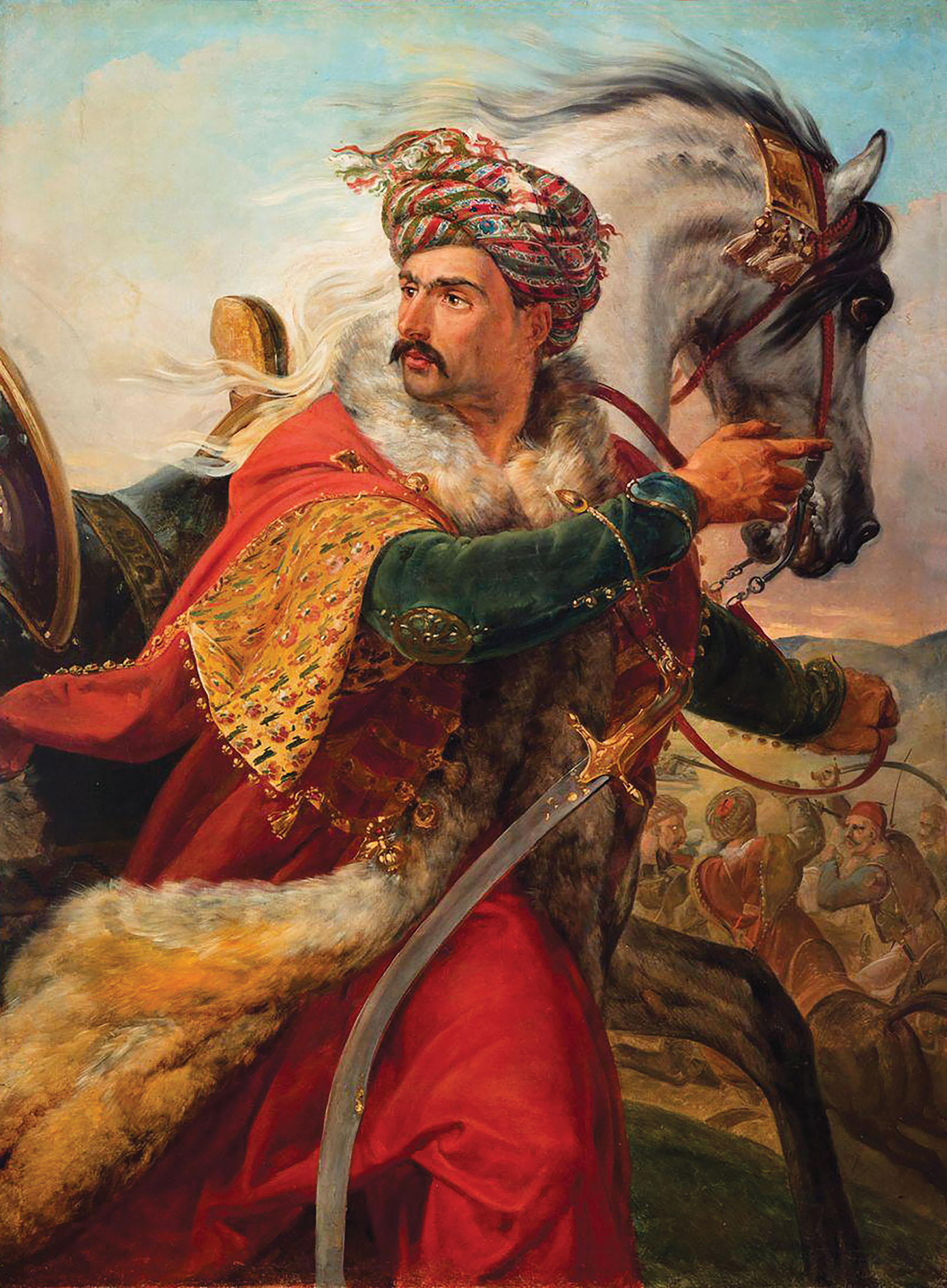
After sweeping them from the field at Kurti, Ismail sought to please his father by offering a reward for every pair of enemy ears collected. His soldiers mutilated the dead and wounded, then raided neighboring villages, cutting the ears from men, women and children. Ismail shipped the ears to Cairo, where an angry Muhammad Ali reminded him such behavior was incompatible with the modern European-style army he sought to build. English said nothing of these atrocities. But others bore witness.
A pair of Englishmen, Cambridge-educated scholar George Waddington and the Rev. Barnard Hanbury, were traveling up the Sudanese Nile when they encountered the southbound army at Merowe on November 26. While English was pleased to see them, Waddington later wrote he had no respect for a man who would abandon his religion. The scholar also noted the deathly silent countryside behind the Egyptian army, strewn with the rotting carcasses of beasts and mutilated men, many of its wells fouled by decaying corpses. The odor was gagging.
Waddington’s published account, Journal of a Visit to Some Parts of Ethiopia, included scathing criticism of English and his religious pretensions. The author described his host as a pale and delicate-looking man who had taken on the grave and calm demeanor of the Turks. Noting that English was a Protestant who had adopted various strains of Christianity before becoming a Jew and an orthodox Muslim in succession, he suggested the adventurer would soon turn Hindu in his “tour of the world and its religions” and would ultimately die an atheist. English claimed Waddington later apologized, but the remarks stuck.
On December 2 the Shaigiya again challenged Ismail, across the Nile at Jabal Daiqa. Although their reconstituted Nubian infantry was impressive, the Shaigiya had lost experienced fighters at Kurti. To embolden the replacements, holy men showered them with magic dust said to render them impervious to bullets. What they didn’t know was that Ismail’s field artillery had finally caught up to the army (English remained absent). As the Nubians charged the Egyptian line, artillerymen touched off their guns, blasting the foot soldiers to pieces at point-blank range. As the attack faltered, the Shaigiya fled the field, leaving the Nubians to be slaughtered by Abdin Bey’s cavalry. (The defeated Shaigiya later proposed entering Egyptian service as irregular cavalry rather than taking up the shameful occupation of farmer. The offer was accepted.)
English described Shaigiya Chief Shouus, reputedly the greatest warrior on the Upper Nile, as “a large stout man of a pleasing physiognomy, though black.” The American was stunned by the chief’s ability to repeatedly swim his entire cavalry force across the Nile.
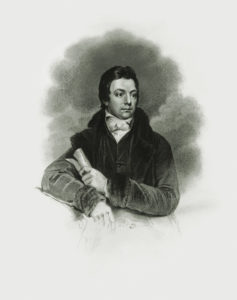
Even as English recovered from his ophthalmia, he was struck by dysentery that left him extremely weak. As his condition improved, English visited the temples, castles and pyramids lining the Nile. On several such ancient monuments he inscribed the name of Salt, a noted Egyptologist—at the time a common means of establishing claim to an antiquity for retrieval and shipment to Europe. Meanwhile, sailors in the party spent their time ashore pillaging villages, robbing and murdering local men and raping women. The “insolence” of villagers who demanded recompense for grain angered English, who suggested the soldiers’ conduct “was not much to be blamed.”
As the army continued downriver in February 1821, Muhammad Ali ordered Ismail to march on the Blue Nile sultanate of Sennar and its fabled riches. The first leg of the journey entailed a forced march across the Bayuda Desert to Berber, bypassing the Great Bend of the Nile. A baggage delay stranded English for a few days. When he did cross the desert, the ordeal left the New Englander with severe sunburn and a recurrence of ophthalmia.
The boats were left to make their way back upriver through the two worst cataracts—the fourth and fifth—in a punishing trip of 57 days. Separated from English by the baggage delay, Khalil and Achmed were forced to accompany the boats. Both suspected the machinations of Ismail’s personal doctor (or protomedico), a Smyrniote Greek and experienced poisoner, but their skills as sailors may have prompted their assignment. Thus, without intending to, Khalil became the first Westerner to travel upriver as far as Sennar.
Achmed died on the Fourth Cataract, Khalil suspecting he’d been poisoned by the protomedico after a quarrel. The most competent physician on the expedition, the Genoese Dr. Andrea Gentile, had met the same fate when the protomedico decided it was easier to poison his colleague than repay a loan. The protomedico had sold off the contents of the expedition’s medicine chest in Cairo to cover debts and surrounded himself with a cadre of thugs. Other Europeans on the expedition feared for their lives, including French geologist Frédéric Cailliaud, who’d joined the expedition to record the legendary pyramids of Meroe. “Death,” he wrote, “seemed to want to claim all the gentlemen around me.” Ismail’s Italian tutor and translator, Domenico Frediani, died as a “chained maniac” in Sennar after a dispute with the protomedico. Ismail was apparently aware of the doctor’s transgressions but found him useful as a spy and henchman.
Four days after setting out across the desert, the army reached Berber, home to 100 fugitive Mamluks. While most fled, the remainder submitted, accepting an offer either to return to Cairo or serve as Ismail’s bodyguards. What English observed in town disturbed him. The Berbers proffered female slaves to the soldiers for mere coins, while a chief’s wife offered the American the choice of bedding either of her married daughters—episodes he recorded as “irreconcilable with the precepts of the Quran.” He later claimed sunstroke spared him from temptation. The offended daughters dismissed him as a rajil batal (“good-for-nothing man”).
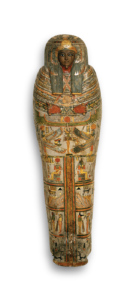
The army was soon joined by Nimr, the Sudanese Arab malik (king) of Shendi, “very dignified in his deportment and highly respectable for his morals,” according to English. To spare the artillery horses for the coming battle, English ordered the guns pulled by camels. Rough treatment would lead to their loss in great numbers.
After a three-week slog down the west bank of the White Nile, Ismail spent little more than two days ferrying his army across the mile-wide river by boat. Following form, the Shaigiya swam their horses across, as did the Bedouins with their camels. A Turkish officer who decided he could do the same lost 70 horses and a number of men. (Khartoum, the present-day capital of Sudan, marks their landing site.)
The march down the south bank of the Blue Nile to Sennar took 13 days, the men on the move from 2 a.m. to 10 a.m., at which point the heat became too intense. Their only sustenance was durra, a local grain requiring much preparation.
As the army approached Sennar, Badi VII, the 26-year-old sultan, greeted Ismail with overtures of peace and escorted the pasha into the legendary city. The magnificent trappings and mounts of the royal entourage seemed promising, assuring the troops they would reap due rewards after their brutal 1,250-mile march from Cairo. They approached the city with cries of joy and volleys of musket fire. Their delight was dashed when they realized the glory days of Sennar had long been over. After decades of decline, the city was little more than a heap of broken ruins, its population inhabiting some 400 squalid huts. The only buildings of any substance were the half-ruined brick palace and mosque. There were no riches, no gold.
With no pay for eight months and only durra to eat, the soldiers began to sell their clothing to buy food and pilfer supplies to hawk in the market. Ismail’s worsening mood was reflected in the growing numbers of headless bodies dumped in the streets. Soldiers impaled anyone who showed the slightest sign of resistance. English overheard scandalized female observers declaring such punishments fit only for Christians. Like the soldiers, he had little use for the inhabitants, describing them as “a very detestable people,” their women as “the ugliest I ever beheld.”
Flying columns raided the still-defiant hinterland, the Egyptians shooting down hundreds of armored warriors and shipping thousands of men, women and children north to the Cairo slave markets. Though a native of abolitionist New England, English acquired a “black slave” of his own. The onetime Marine sat out the slave raids. He instead spent his time demanding Ismail allow him to return to Cairo on health grounds before the onset of the miserable four-month rainy season.
In the meantime, Ismail ordered two captured chiefs impaled. The first awaited his end by reciting the Muslim profession of faith. The second insulted and cursed his executioners. When he could no longer speak, he spat at them. The executions disgusted English, who was shocked at the dark turn Ismail had taken.
After a harrowing return trip to Cairo, English went to see Muhammad Ali to collect the funds he was owed for his military service. The American adventurer found the pasha in a foul temper. He’d just received word that son Ismail had been burned alive in Shendi by Malik Nimr, whom Ismail had offended and struck. Broke and desperate, English called on Consul General Salt, who provided him with the funds to return home in exchange for his narrative manuscript and various artifacts. Salt published the work, which the author dedicated to him, “my fatherly friend in a foreign land.” Khalil Aga composed his own unpublished journal of the expedition, only recently discovered among Salt’s papers at the British Library. He remained in Egypt, living as a Muslim and continuing to serve Muhammad Ali.
In January 1822 Pliny Fisk, an American evangelical missionary working in Egypt, reached out to English after hearing the American was ready to “return to his country and the religion of his fathers.” The penalty for abandoning Islam or the army was death, but English made his way to Salt’s consulate, where a network stood ready to smuggle remorseful converts out of Egypt. On April 1 English joined Fisk aboard a Malta-bound ship, playing the part of the missionary’s servant. Fisk, who normally recorded everything, shared nothing of his long shipboard conversations with English, only that the latter exhibited “obstinate hostility to the truth.” Apparently the lapsed Christian had not entirely abandoned Islam.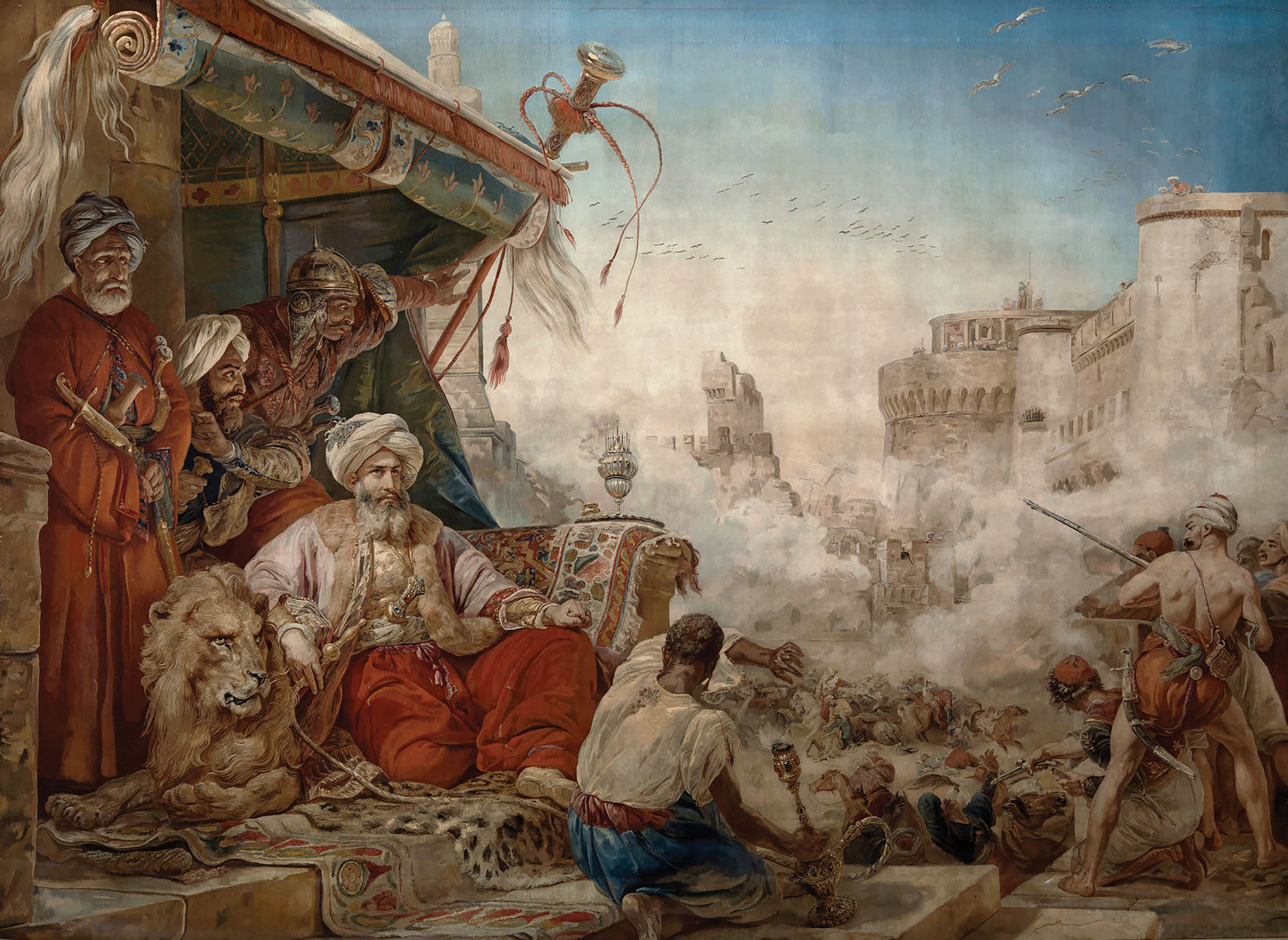
English’s account of his adventures in Sudan went largely unremarked. Reading more like an intelligence report, it revealed nothing of its author, who freely admitted he’d missed the main engagements of the campaign. English assured readers of the high regard in which he was held by Ismail, but his service record suggests otherwise—he had missed the two major battles of the campaign, typically lagged behind the main body of the army, eschewed the slave-raiding parties out of Sennar and demanded a return to Cairo.
English’s father and friends sought to ease his return stateside by writing letters to newspapers, praising his “achievements” in Sudan and disputing the sincerity of his conversion to Islam.
English did not overtly practice Islam on his return to the United States, but he did publish yet another work critical of Christianity, against the objections of his remaining friends. Secretary of State Adams continued to act as his patron, sending English on a trade mission to Constantinople in 1822, where he appears to have resumed life as a Muslim.
As president, Adams continued to find employment for English. On July 22, 1828, he engaged him as a bearer of secret dispatches to Commodore William Crane, commander of the Mediterranean Squadron. Two days later, however, English was driven off in disgrace. There is no record of what happened, only an entry in Adams’ journal referring to “mortifying” misconduct by English. “Notwithstanding his eccentricities, approaching to insanity, have continued to favor him till now,” the president wrote. “I can now no longer sustain him.”
Had English worked for the British, the Americans, both or neither? Had he sincerely converted to Islam, or had that been a means to infiltrate Muhammad Ali’s expedition to Sudan, a region of growing interest to Britain? Some U.S.-based Islamists maintain English was “America’s first Muslim” and kept true to his adopted faith.
English’s death on Sept. 19, 1828, just two months after his dismissal, deepens the mystery. His obituary provides no clue as to how the 41-year-old perished. Suicide or illness seem possible. His memoir sheds no light on his motivations. His religious works passed into obscurity with him. No portrait seems to survive of the shadowy American mercenary—fitting for a man who took so many secrets with him to the grave. MH
Andrew McGregor is the director of Toronto-based Aberfoyle International Security, specializing in security issues in the Islamic world. For further reading he recommends
A History of Conversion to Islam in the United States, Vol. 1: White American Muslims Before 1975, by Patrick D. Bowen; Americans in Egypt, 1770–1915, by Cassandra Vivian; and American Travelers on the Nile: Early U.S. Visitors to Egypt, 1774–1839, by Andrew Oliver.
This article appeared in the January 2021 issue of Military History magazine. For more stories, subscribe here and visit us on Facebook:






